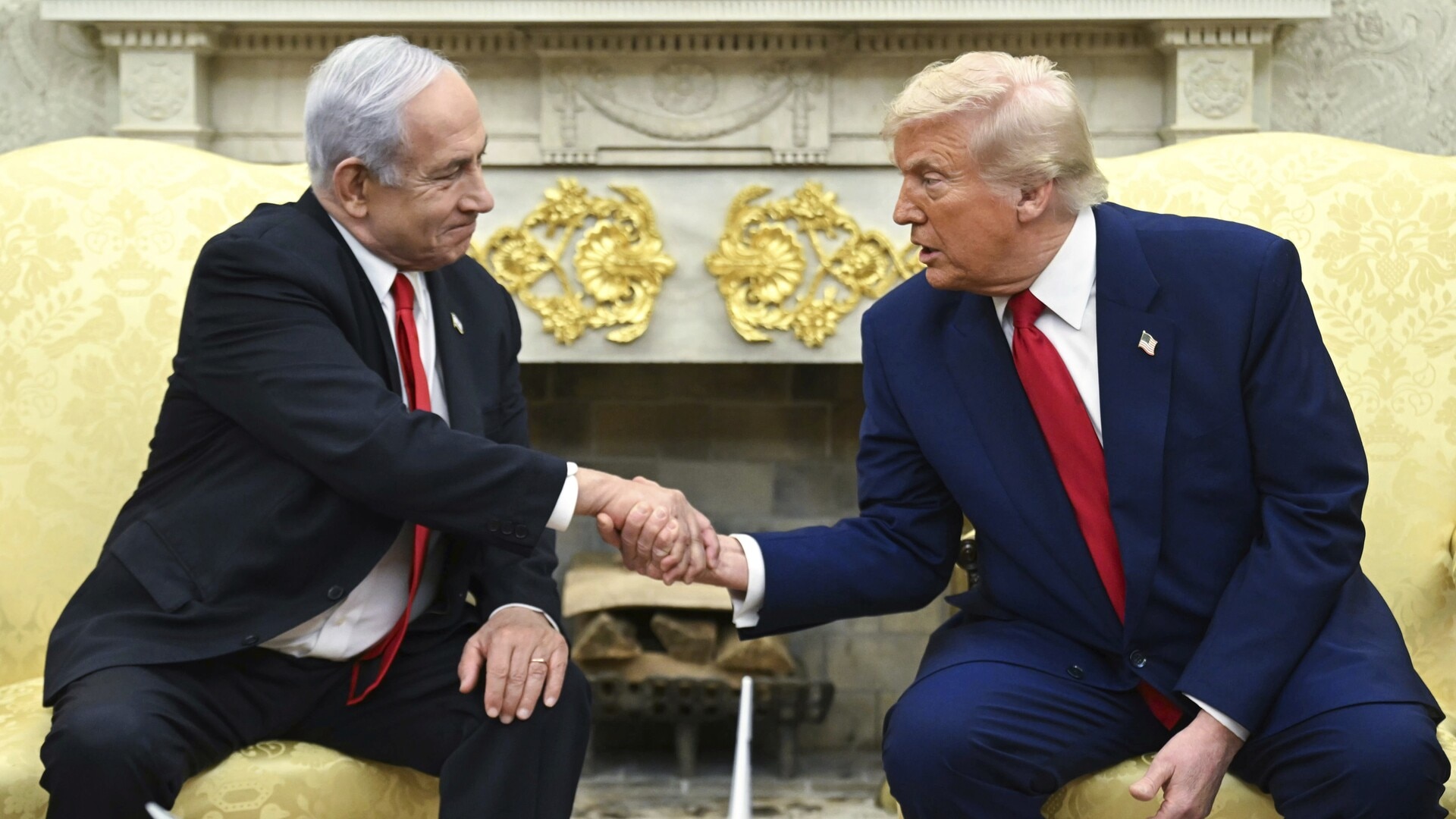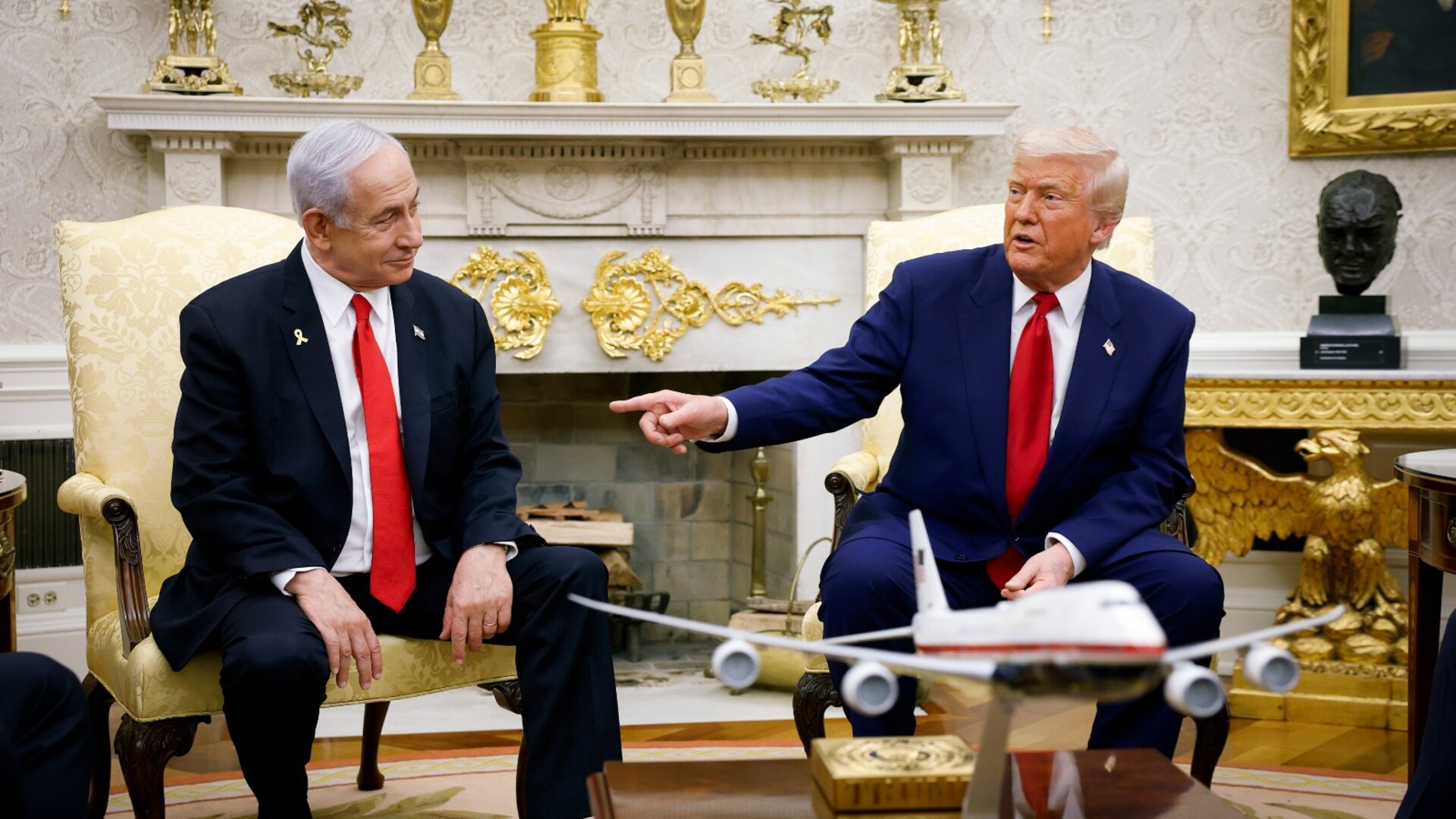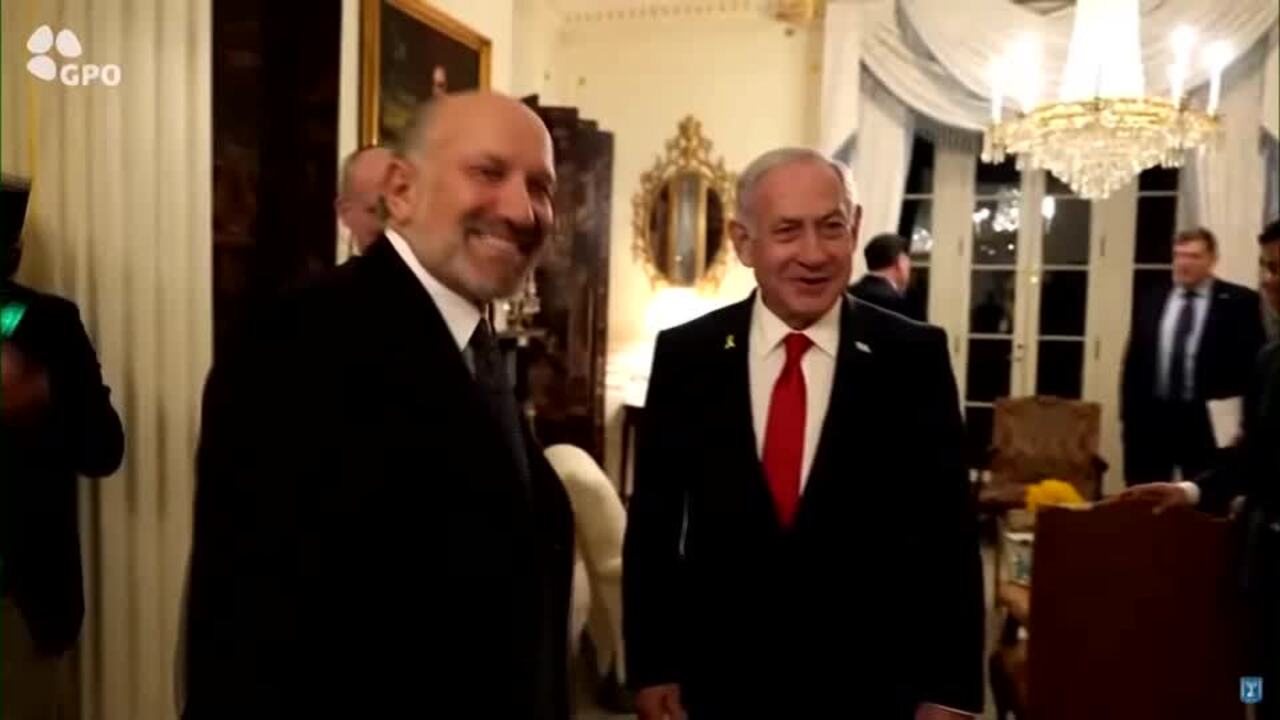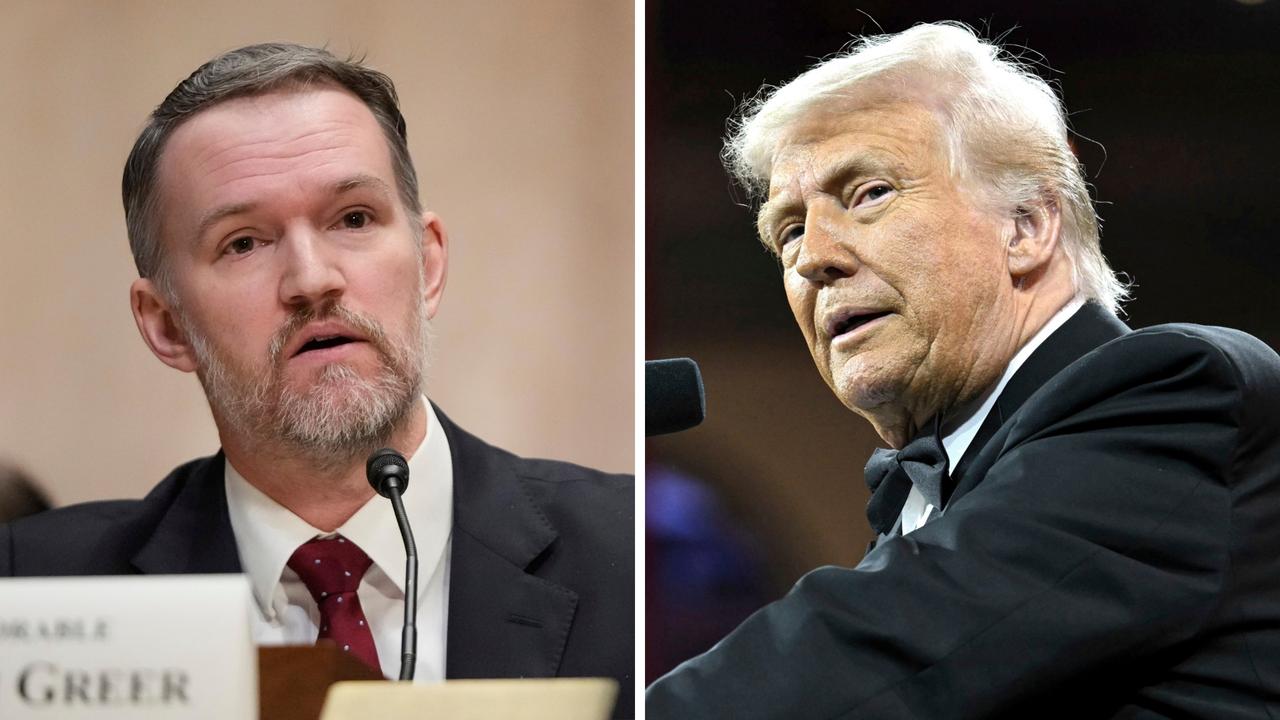Benjamin Netanyahu vows to eliminate trade deficit with US
After meeting Donald Trump at the White House, the Israeli Prime Minister said his country could serve as a model on tariffs for other countries.

Israeli Prime Minister Benjamin Netanyahu has said he plans to completely erase the trade deficit between the US and Israel, opening a negotiation spurred by tariffs that the US imposed globally last week.
After meeting Donald Trump at the White House on Tuesday (AEDT), Mr Netanyahu told reporters: “We will eliminate the trade deficit with the United States. We intend to do it very quickly. We think it’s the right thing to do. And we’re also going to eliminate trade barriers.”
“I think Israel can serve as a model for other countries who ought to do the same. I’m a free trade champion,” the Israeli Prime Minister added, saying that tariffs will be eliminated “rapidly.”
Mr Trump, seated next to Mr Netanyahu said simply: “That’s very nice.”
The President said he wasn’t considering a pause on tariffs to allow for negotiations with other countries.
“We’re not looking at that. We have many, many countries that are coming to negotiate deals with us, and there are going to be fair deals,” he told reporters. He also reiterated his threat of additional 50 per cent duties on Chinese goods if Beijing did not retract its counter tariff plans by Tuesday (local time).
“We’re making tremendous progress with a lot of countries,” he said. “They’re being beaten badly by what’s happening. It’s the only chance we have to reset on trade.”
Asked why the US wasn’t talking tariffs with Russia, he replied: “We’re not talking tariffs with Russia because we’re not doing business with them. They’re at war.”
He added that talks between Russia and Ukraine were continuing but said: “I’m not happy with the bombing (by Russia that killed 20 people including nine children on Friday). It’s a horrible thing.”
Mr Netanyahu said new negotiations were in the works aimed at getting more hostages released from Gaza.
“We’re working now on another deal that we hope will succeed, and we’re committed to getting all the hostages out,” he said.
Mr Trump also doubled down on his plan for the US to “control” the Gaza strip -- which he described as a “great piece of real estate” - which he initially announced when Mr Netanyahu last visited him in February.
“Having a peace force like the US controlling and owning the Gaza Strip would be a good thing,” he said. “It would be a free zone where people aren’t going to be killed every day.”
The US President also said the US and Iran would have direct talks on Tehran’s nuclear program, with a “very high level” meeting planned for Saturday.

“We’re dealing with them directly, at almost the highest level,” Mr Trump said. “Hopefully these talks will be successful. It will be in Iran’s interests if they’re successful.”
Iran has refused to hold direct talks, agreeing only to indirect negotiations, as tensions ratchet up between the two countries. On Monday (AEDT), Tehran warned its neighbours not to support the US in the event of strikes by the American military, and raised the alert for its military to the highest level.
Mr Trump greeted the Israeli prime minister with a firm handshake earlier as he arrived for talks.
Shortly before their meeting, the White House announced that plans to hold a joint news conference had been cancelled. The White House did not offer any immediate explanation for why it was scrapped.
Mr Netanyahu’s office has put the focus of his hastily organised Washington visit on the tariffs, while stressing that the two leaders would discuss major geopolitical issues including the war in Gaza, tensions with Iran, Israel-Turkey ties and the International Criminal Court, which issued an arrest warrant against the Israeli leader last year. Mr Trump in February signed an executive order imposing sanctions on the ICC over its investigations of Israel.
Ahead of his meeting with Mr Netanyahu, Mr Trump held a call with French President Emmanuel Macron, Egyptian President Abdel Fattah El-Sisi and Jordan’s King Abdullah II. All three leaders have been key interlocutors in efforts to tamp down tensions in the Middle East and bring an end to the Israel-Hamas war.

The engagement was organised by Macron, according to a French government official who was not authorised to comment publicly and spoke on condition of anonymity.
The prime minister soon after arriving in Washington on Sunday evening met with senior Trump administration officials, Commerce Secretary Howard Lutnick and US Trade Representative Jameson Greer, to discuss the tariffs. And Netanyahu met on Monday with Steve Witkoff, Trump's special envoy to the Middle East, ahead of his sit down with the president.
Trump and Netanyahu are also expected to discuss Israel’s hoped-for annexation of parts of the occupied West Bank, which the Palestinians want as the heart of their future independent state.
Eytan Gilboa, an expert on US-Israel relations, said he expected Trump to use the tariffs as leverage to force concessions from Netanyahu.
In Israel’s case, those concessions might not be economic. Trump may pressure Netanyahu to move toward ending the war in Gaza — at the very least through some interim truce with Hamas that would pause the fighting and free more hostages.
Gilboa said Trump is hoping to return from his first overseas trip — expected next month to Saudi Arabia — with some movement on a deal to normalise relations with Israel, which would likely require significant Israeli concessions on Gaza.
If he does manage to move toward bolstering ties between Israel and Saudi Arabia, that would act as a regional diplomatic counterweight to pressure Iran, against which Trump has threatened new sanctions and suggested military action over its nuclear program.
In a pre-emptive move last week, Israel announced that it was removing all tariffs on goods from the US, mostly on imported food and agricultural products, according to a statement from Netanyahu’s office.
The statement did not mention Trump’s impending tariffs, which were announced the following day, but said Israel’s step would bolster ties with its largest trading partner, the United States. Israel is not a major trading partner of the US
But the tactic failed, and with a 17% rate, Israel was just one of dozens of countries that were slapped with tariffs on Trump’s so-called Liberation Day last week.
Although Israel is a tiny market for US products, the United States is a key trade partner of Israel. Much of that trade is for hi-tech services, which are not directly affected by the tariffs, but key Israeli industries could be impacted.
The Manufacturers Association of Israel estimates that the tariffs will cost Israel about $3 billion in exports each year and lead to the loss of 26,000 jobs in industries that include biotechnology, chemicals, plastics and electronics. The World Bank says Israel’s gross domestic product, a measure of economic output, is over $500 billion a year.
“The damage won’t stop at exports,” said Ron Tomer, the group’s president. “It will scare investors, encourage companies to leave Israel and undermine our image as a global centre of innovation.” He called on the government to work urgently to protect the economy.
___Goldenberg reported from Tel Aviv, Israel. White House correspondent Zeke Miller contributed reporting.



To join the conversation, please log in. Don't have an account? Register
Join the conversation, you are commenting as Logout